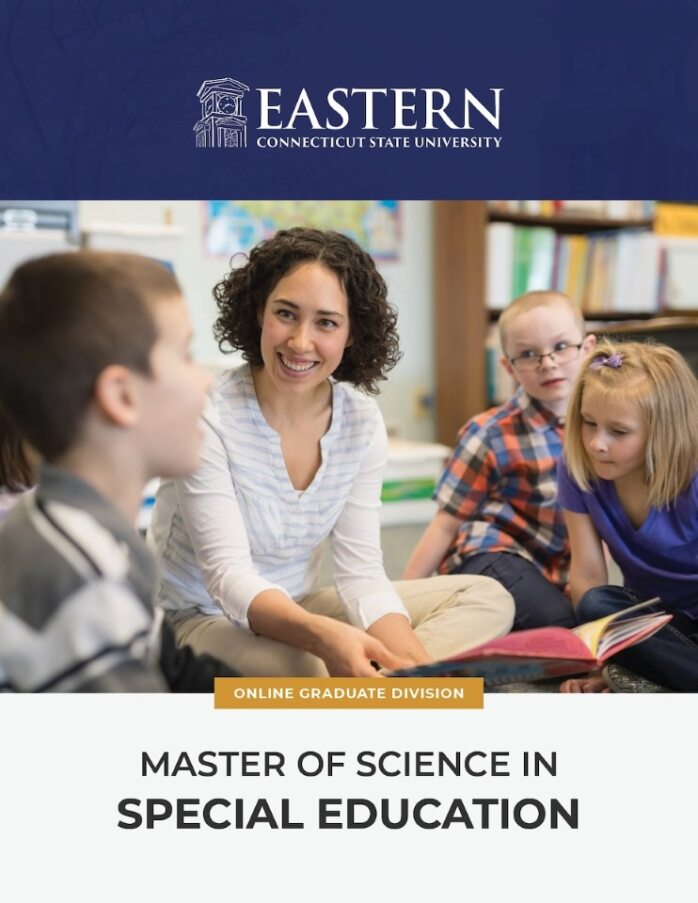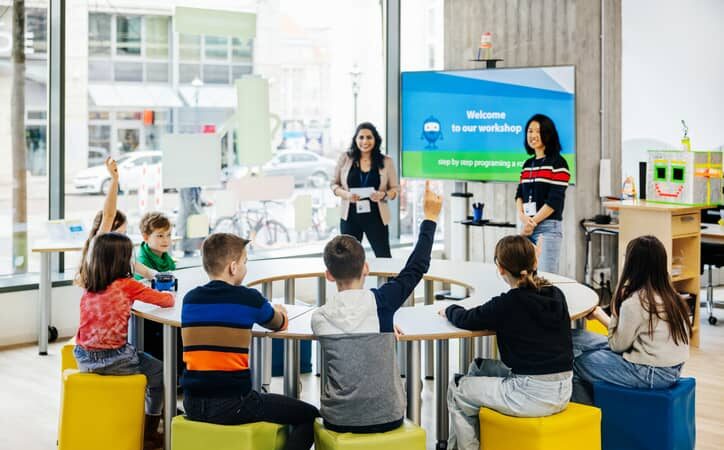Special educators play a vital role, especially in a world that increasingly celebrates equity and diverse cultures. They work to create inclusive and supportive environments for students with unique learning needs. This dedication begins when they earn a master’s degree that paves the way to understanding the students with disabilities.
The foundation of every quality special education graduate program lies in coursework that explores various exceptionalities, such as learning disabilities, autism spectrum disorders, and emotional and behavioral disorders. Aspiring special educators learn to navigate the landscape of individualized education plans and how to tailor teaching methodologies for diverse learning styles.
Preparing the Next Generation of Special Educators for an Inclusive World
They also learn from educators who are committed to training the next generation of special education teachers. Dr. Kwangwon Lee, an assistant professor of Early Childhood Special Education and Special Education at Eastern Connecticut State University (Eastern), as well as a co-coordinator of the M.S. in Special Education program, said his job is to prepare educators for a modern, inclusive world.
“I am passionate about preparing teacher candidates and current practicing teachers for teaching children with disabilities. I seek to prepare all educators for an inclusive world and to broaden their perspectives of what it means to be disabled,” Dr. Lee said. “It is also fascinating to me how the field of special education has evolved throughout the past two decades. I continuously work to keep current in the field and I am always interested in bringing that knowledge to the courses I teach.”
The impact of special educators’ work extends far beyond the classroom, leaving an indelible mark on the lives of the students they serve and the communities they touch.
What Students Will Learn in the Special Education Program
The heart of special education lies in effective communication and collaboration. The M.S. in Special Education program emphasizes the importance of working closely with parents, general education teachers and a multidisciplinary team of specialists.
Special educators learn the art of fostering partnerships, ensuring that everyone involved is working cohesively to support the student’s success.
The curriculum doesn’t stop at learning theory. Hands-on experiences are woven into the program, with student-teaching placements in special education classrooms. These real-world encounters allow aspiring educators to witness the day-to-day challenges of working with students with disabilities. It’s a crash course in adaptability and empathy that can only be found beyond the scope of a textbook, but more so with person-to-person interaction.
According to Dr. Lee: “The program uniquely prepares students for special education through an interagency approach. We seek to prepare all students for not only working in classroom settings but also for working with related service providers (e.g., social workers, disability agencies) and families in community settings. Special education is not limited to the school and classroom setting. We expect that students will gain a unique community-based experience from our program and will gain a new understanding of how to work with a variety of professionals to meet the needs of all children with disabilities and their families.”
Assistive Technology and Behavioral Management
Assistive technology is a cornerstone of modern special education, and the M.S. program equips educators with the knowledge to integrate these tools seamlessly into their teaching practices. From augmentative communication devices to specialized software catering to various disabilities, special educators will become adept at leveraging technology to enhance learning opportunities for their students.
Behavior management is another skill set honed throughout the program. Special educators learn evidence-based strategies to address challenging behaviors, creating a positive and inclusive classroom culture. Understanding the underlying causes of behaviors and implementing proactive approaches are key elements in fostering a conducive learning environment for all students.

M.S. in Special Education (Online)
Embark on a transformative journey with an online M.S. in Special Education. Hone expertise, empower students, and open doors to impactful careers. Start your academic journey today.
Advocacy is another critical aspect emphasized in the special education graduate program. Future special educators are equipped with the knowledge and skills needed to advocate for their students’ rights and needs. Whether navigating the legal framework governing special education or collaborating with community organizations, graduates emerge as strong advocates for inclusivity and equal opportunities.
Cultural competence is not overlooked in these programs. Special educators are prepared to work with diverse populations, recognizing the intersectionality of identities and tailoring their approaches accordingly. This cultural sensitivity ensures that students from various backgrounds receive equitable and meaningful educational experiences.
With a program curriculum that includes courses such as Assistive/Adaptive Technology, Evidence-Based Practices for Behavior Management in Special Education, and Interagency Collaboration for Students with Disabilities and their Families, students can feel confident about being able to meet the needs of children with disabilities as well as their families.
M.S. in Special Education Learning Outcomes
Specific learning outcomes for students considering the program include the following:
Demonstrate foundational knowledge: Graduates have a comprehensive understanding of special education, encompassing laws, policies, learner characteristics and the ability to plan for diverse learning environments. They develop expertise in instruction and uphold professional responsibilities toward students with mild-to-moderate disabilities.
Apply knowledge on diagnoses and teaching frameworks: Graduates can apply acquired knowledge regarding diagnoses, planning and placement teams, referral processes, and use appropriate teaching frameworks. This includes Response to Intervention, Positive Behavior Intervention Support (also known as Scientific Research-Based Intervention in Connecticut), and Universal Design for Learning.
Apply assessment theories and approaches: Graduates can apply theories and approaches to assessment for analyzing individual and group data. They develop plans for content-based and art interventions tailored to students with learning disabilities, exceptional learning needs, and those from culturally or linguistically diverse backgrounds.
Analyze behavior management practices: Graduates can analyze evidence-based behavior management practices, engage in interagency collaborations and contribute to building inclusive communities for individuals with disabilities.
Demonstrate planning and implementation abilities: Graduates can plan, implement and support students with disabilities in diverse settings. They demonstrate culturally responsive practices and collaborate effectively in professional partnerships.
“Most of our current students are active teachers who are licensed and work in a variety of settings, ranging from early childhood education to secondary education. They are general education teachers who are either interested in special education to support students in their current roles as general education teachers or seeking cross-endorsement to become a special education teacher where they work in Connecticut,” Dr. Lee added.






